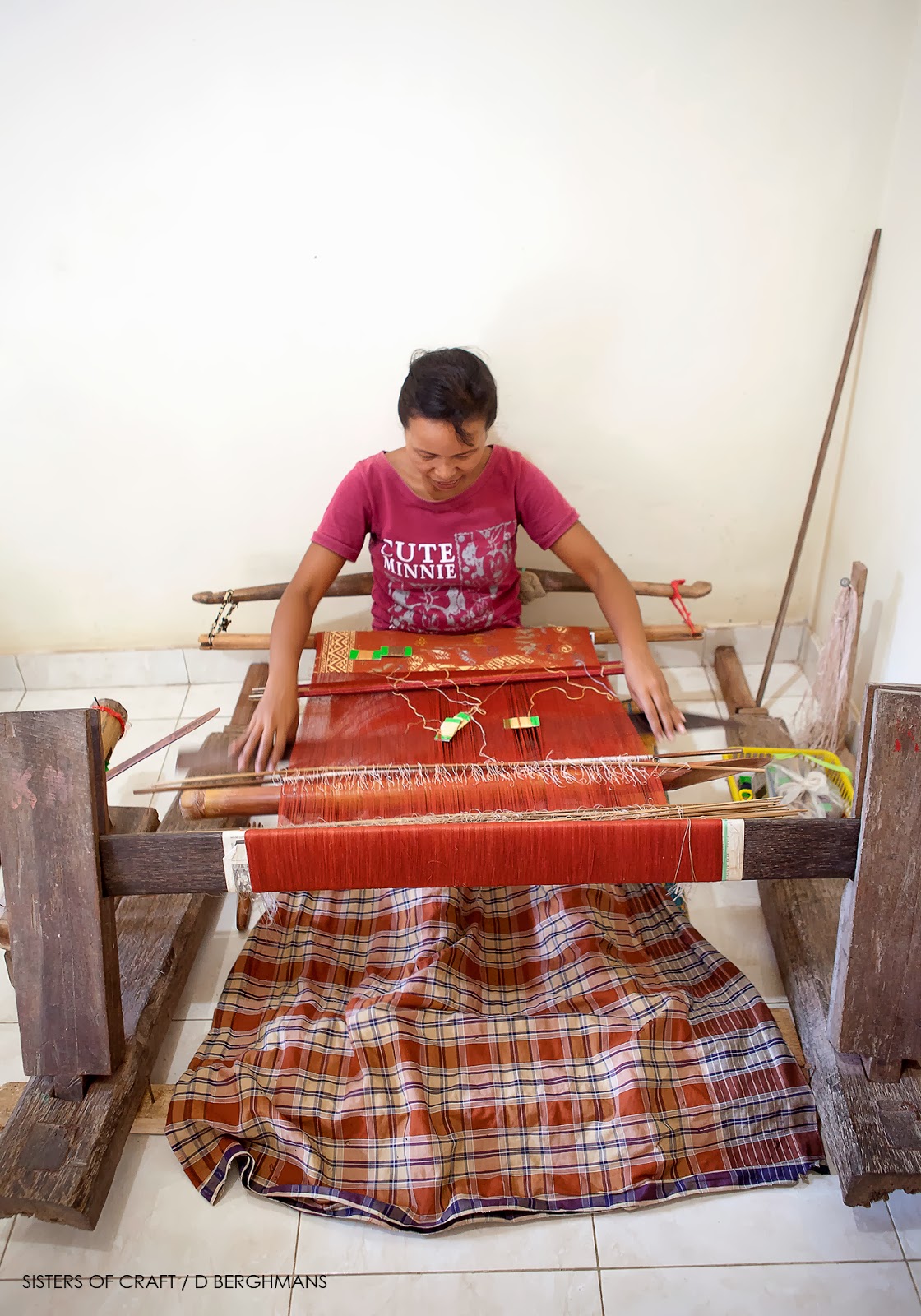Last week our journey continued to Sidemen to meet up with a group of weavers. Sidemen is an agricultural village in central Bali surrounded by stunning mountain and rice field views, well known for it's long weaving tradition. The friendly locals, still not used to many tourists, made us feel right at home. The otherwise quiet village, was during our stay in full preparation for a major and rare religious ceremony (hold only once every 40 years) which we were lucky to be part of. The Balinese people's dedication to their religion as well as the detailed decorations and offerings left a deep impression.
The meetings with the local weavers gave us a good insight into the Songket and Bebali woven textiles famous for the area. The traditional weaving is done with primitive back strap looms using natural dyed cotton or silk threads. The dyes are mainly made from bark, roots and plants and the complicated motives all have a traditional and symbolic meaning.
The technical skills and patience these women possess are simply admirable. One textile, from dying to weaving, usually takes months to finish, which naturally makes the prices fairly high. To meet the demand for cheaper textiles, chemical dying and "ordinary" weaving are commonly used. However the women in the group all prefer the natural dyed textiles for their authenticity, quality and beautifully muted colors. Increased marketing and awareness of the cultural value of naturally made textiles allows the women to continue their patient work in keeping the traditional weaving skills alive.
naturally died silk
traditional spinning rock
bebali - 'sacred textile', only used in religious ceremonies
back strap loom / songket weaving
songket - mainly used as sarong and decorative object
the weavers wearing their textiles














No comments:
Post a Comment